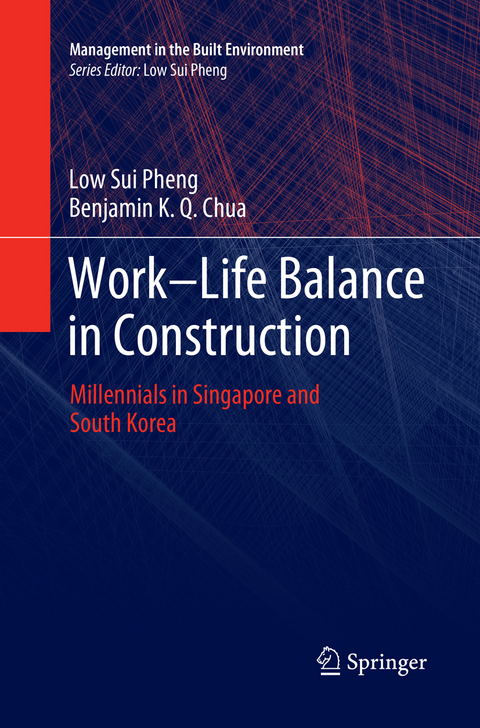
Work-Life Balance in Construction
Millennials in Singapore and South Korea
Seiten
2019
|
Softcover reprint of the original 1st ed. 2019
Springer Verlag, Singapore
978-981-13-4704-7 (ISBN)
Springer Verlag, Singapore
978-981-13-4704-7 (ISBN)
The book presents the latest studies on the work–life balance of millennial (also known as Generation Y) building professionals in Singapore and South Korea. Accordingly, it explains and links various principles regarding work–life conflicts, work–life enrichments and the work–life interface.
The book presents the latest studies on the work–life balance of millennial (also known as Generation Y) building professionals in Singapore and South Korea. Its main goal is to compare and contrast the workplace attitudes of millennials, and to provide guidelines that help supervisors in the construction industry manage their employees’ expectations regarding work–life balance. Accordingly, it explains and links various principles regarding work–life conflicts, work–life enrichments and the work–life interface. Furthermore, the book introduces readers to coping strategies, a dimension that has not yet been explored substantially and has the potential to contribute significantly to the study and understanding of work–life balance. The book makes recommendations for the top management on assigning a capable leader to drive the changes in the organization, and on empowering the leader to implement effective strategies for promoting work–life balance, especially for the millennials who are now playing an increasing central role in the global construction sector.
The book presents the latest studies on the work–life balance of millennial (also known as Generation Y) building professionals in Singapore and South Korea. Its main goal is to compare and contrast the workplace attitudes of millennials, and to provide guidelines that help supervisors in the construction industry manage their employees’ expectations regarding work–life balance. Accordingly, it explains and links various principles regarding work–life conflicts, work–life enrichments and the work–life interface. Furthermore, the book introduces readers to coping strategies, a dimension that has not yet been explored substantially and has the potential to contribute significantly to the study and understanding of work–life balance. The book makes recommendations for the top management on assigning a capable leader to drive the changes in the organization, and on empowering the leader to implement effective strategies for promoting work–life balance, especially for the millennials who are now playing an increasing central role in the global construction sector.
Introduction.- Work-Life Balance and Work-Life Interface.- Constructing the Conceptual Framework.- Singapore and South Korea Context.- Research Design and Methodology.- Research Findings and Analysis.- Conclusion.
| Erscheinungsdatum | 02.02.2019 |
|---|---|
| Reihe/Serie | Management in the Built Environment |
| Zusatzinfo | 24 Illustrations, color; 2 Illustrations, black and white; XVI, 219 p. 26 illus., 24 illus. in color. |
| Verlagsort | Singapore |
| Sprache | englisch |
| Maße | 155 x 235 mm |
| Themenwelt | Sozialwissenschaften ► Soziologie ► Mikrosoziologie |
| Technik ► Bauwesen | |
| Wirtschaft ► Betriebswirtschaft / Management ► Personalwesen | |
| Wirtschaft ► Betriebswirtschaft / Management ► Unternehmensführung / Management | |
| Weitere Fachgebiete ► Handwerk | |
| ISBN-10 | 981-13-4704-2 / 9811347042 |
| ISBN-13 | 978-981-13-4704-7 / 9789811347047 |
| Zustand | Neuware |
| Haben Sie eine Frage zum Produkt? |
Mehr entdecken
aus dem Bereich
aus dem Bereich
Eine Einführung in Theorien, Konzepte und ausgewählte …
Buch | Softcover (2024)
Springer Fachmedien Wiesbaden GmbH (Verlag)
CHF 48,95


